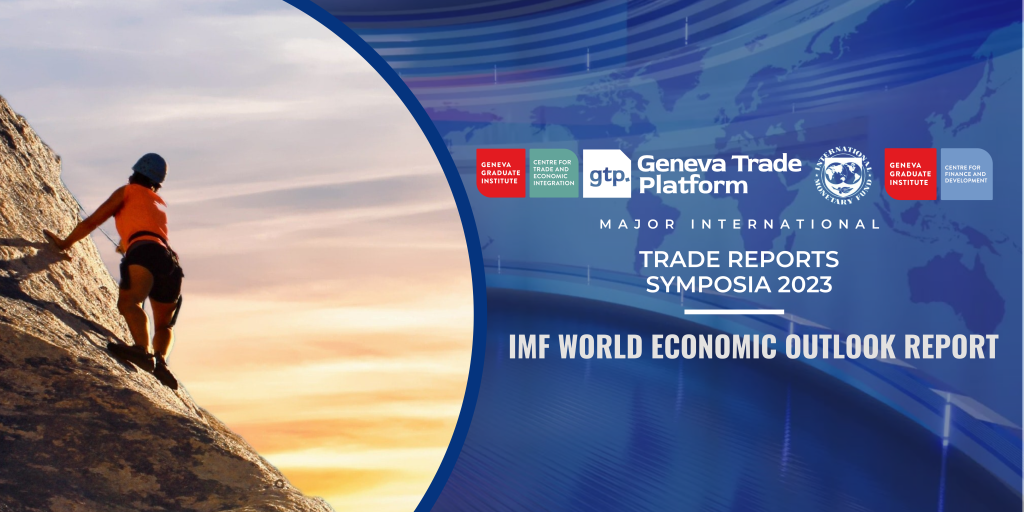We are delighted to invite you to save the dates for an upcoming five-session public symposia on major international trade reports, featuring authors and high level representatives of major international organizations presenting their flagship reports.
Geneva is home to the headquarters and representations of some of the world’s foremost analytical and research organizations, the trade related flagship reports of which represent the combined efforts of dozens of leading scholars.
Through this five-session symposium, representatives from the World Trade Organization, World Bank, International Trade Centre, International Monetary Fund and UNCTAD will present and explain one of their key reports from the last year at an open session at the Graduate Institute.
In our third session, the IMF World Economic Outlook Report will be presented by:
Opening remarks
- Nathan Sussman, Professor, International Economics and Pictet Chair in Finance and Development, Geneva Graduate Institute
Presentation
- Shekhar Aiyar, Division Chief, Multilateral Surveillance Division, Research Department, IMF
- Andrea F. Presbitero, Senior Economist, Multilateral Surveillance Division, Research Department, IMF
Supply-chain disruptions and rising geopolitical tensions have brought the risks and potential benefits and costs of geoeconomic fragmentation (GEF) to the center of the policy debate. This chapter of the IMF’s World Economic Outlook studies how GEF can reshape the geography of foreign direct investment (FDI) and, in turn, how FDI fragmentation can affect the global economy. The recent slowdown of FDI has been characterized by divergent patterns across host countries, with flows increasingly concentrated among geopolitically aligned countries, particularly in strategic sectors. Looking forward, several emerging and developing economies are highly vulnerable to FDI relocation, given their reliance on FDI from countries which often are geopolitically distant. In the long-run, FDI fragmentation due to the emergence of geopolitical blocs can generate large output losses. These may be especially severe for emerging and developing economies facing heightened restrictions from advanced economies, which are the major sources of FDI.




